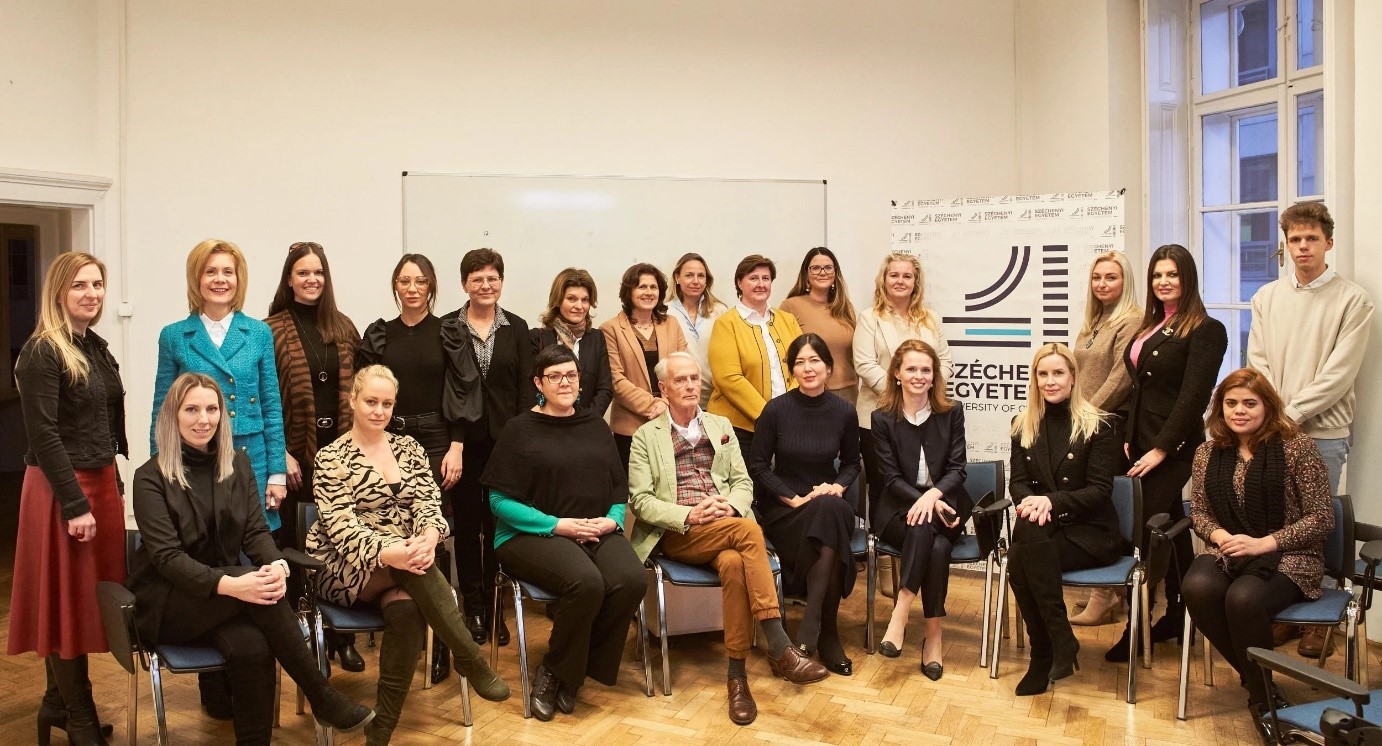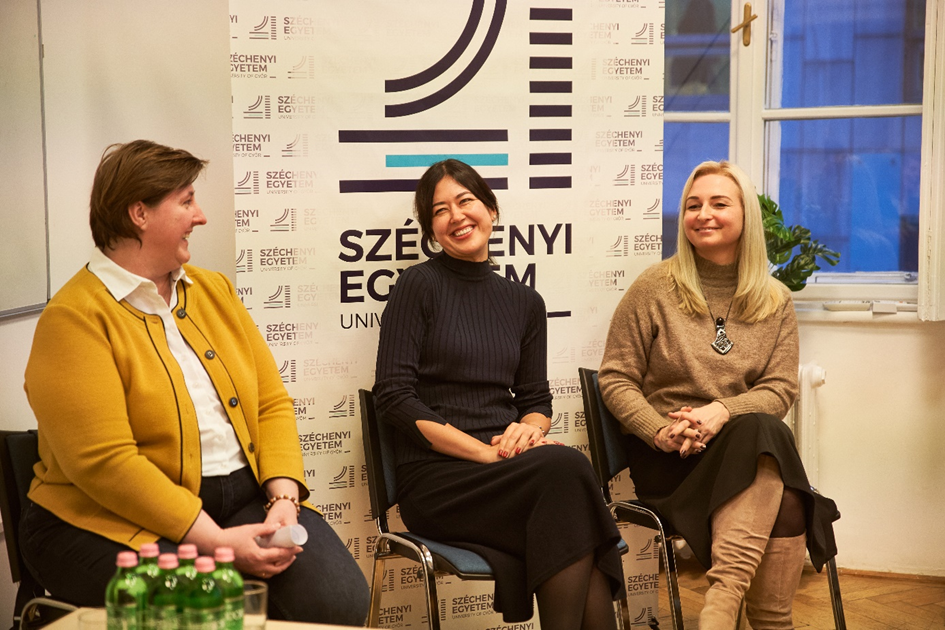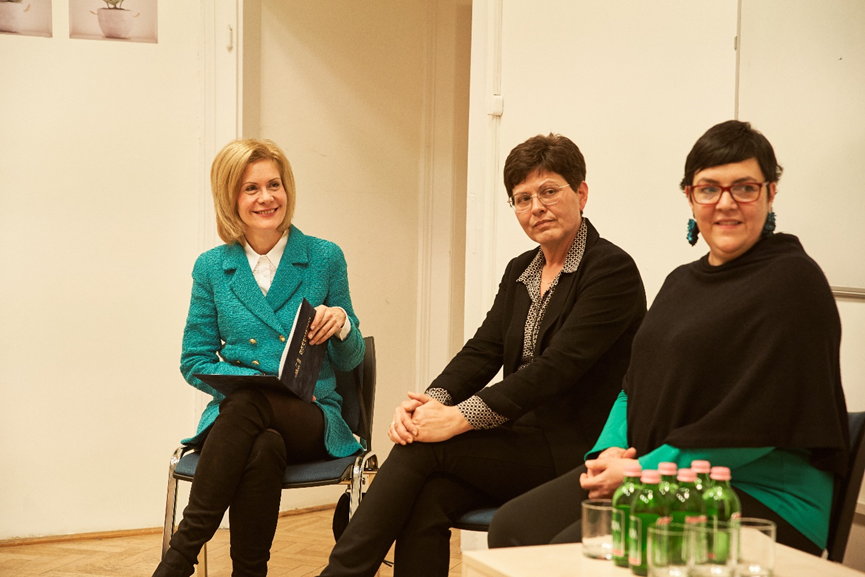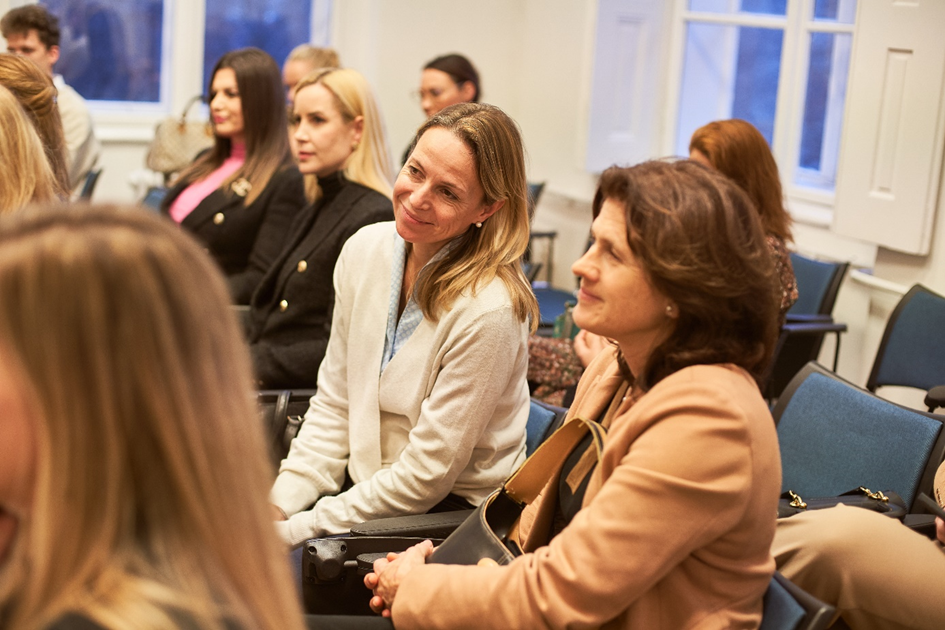Gender equality at the heart of SZE’s new seminar series
In line with the UN's Sustainable Development Goals, Széchenyi István University is hosting a series of panel discussions on the theme of gender equality featuring role models who have demonstrated their professional success and determination, through fulfilling their mission in society. The first event focused on the challenges and experiences of teleworking.
Gender equality, a major challenge in today's society, is also considered by Széchenyi István University to be an extremely significant topic. Consequently, the University’s Globalisation Competence Centre organised a panel discussion, followed with great interest, at the institution’s Budapest Innovation and Training Centre.
"Our University is an associated institution of the United Nations Academic Impact (UNAI) programme, a collaborative initiative of HEIs, and we place particular emphasis on supporting the UN’s Sustainable Development Goals, one of which ensures equality between men and women. In addition to the recent Budapest event, the monthly panel discussions, planned for this year in Győr, Mosonmagyaróvár and Zalaegerszeg, will be focussing on this topic with the help of invited speakers," emphasized Dr Eszter Lukács, Vice President for Global Strategy, Head of SZE’s Globalisation Competence Centre and member of the Board of the Hungarian UN Association. She added that the UN Information Centre in New York, having been briefed on the event, indicated their interest in participating in upcoming seminars via the UN Information Centre in Vienna.

Participants in the panel discussion at SZE’s Budapest Innovation and Training Centre (Photo: József Bankó / Paradignow Photography)
At the panel discussion, held at the Budapest Innovation and Training Centre, Ildikó Király, HR Director of Bridgestone Tatabánya Manufacturing Kft., Dr Eszter Kovács, HR Consultant at Audi Hungaria Ltd., Dr Erika Hollósi-Kalmár, General Secretary to the Győr-Moson-Sopron County Chamber of Commerce and Industry, Katalin Berdó-Németh, HR Director of Jaguar Land Rover Hungary Kft. and Dr Elza Saitova, Vice President of Reperion, shared their thoughts with the audience, with Dr Eszter Lukács moderating.
It is worth noting that four of the attendees were Széchenyi alumni. The programme was titled The Challenges to HR of Teleworking, and focussed on experiences with this mode of working, which has become very widespread in the wake of the coronavirus epidemic.
 Ildikó Király, HR Director of Bridgestone Tatabánya Manufacturing Kft., Dr Elza Saitova, Vice President of Reperion and Dr Eszter Kovács, HR Consultant at Audi Hungaria Zrt. (Photo: József Bankó/ Paradignow Photography)
Ildikó Király, HR Director of Bridgestone Tatabánya Manufacturing Kft., Dr Elza Saitova, Vice President of Reperion and Dr Eszter Kovács, HR Consultant at Audi Hungaria Zrt. (Photo: József Bankó/ Paradignow Photography)

Dr Eszter Lukács, Vice President for Global Strategy at Széchenyi István University, Dr Erika Hollósi-Kalmár, Secretary to the Győr-Moson-Sopron County Chamber of Commerce and Industry and Katalin Berdó-Németh, HR Director of Jaguar Land Rover Hungary Kft.
Petra Perényi-Isky, advisor from SZE’s Centre for International Programmes, the main organizer of the event, said that all speakers agreed that, at the beginning of the epidemic, the transition from face-to-face to online was a challenge, but by now hybrid workflows have been established in all organizations. In practice, in companies, this now means one to three days a week home office. The speakers stressed that employees greatly value the opportunity to work from home.
"Experience, in general, shows that people who work efficiently in the office are equally efficient at achieving their aims when working at home. At the same time, speakers stressed the importance of trust and dialogue with colleagues to define each step of the workflow, so that they can progress in the same way without the office dynamic. It is interesting to note that young workers of Generation Z have a very different perception of hybrid working: they have a basic expectation of the possibility to work from home and require a high degree of flexibility from their employer. Speakers also related the difficulties of the quarantine period as mothers, when they had to take on multiple roles at home. “Based on these experiences, they also tried to keep in mind, as HR managers, the challenging situation of families,” explained Petra Perényi-Isky, who added that one of the conclusions of the discussion was that personal contact and informal communication are irreplaceable. So, if necessary, face-to-face meetings should be transformed into online meeting points - even in the form of online lunches – because, without them, a successful and efficient workflow cannot be maintained.

Members of the audience followed the panel discussion with great interest. (Photo: József Bankó / Paradignow Photography)











